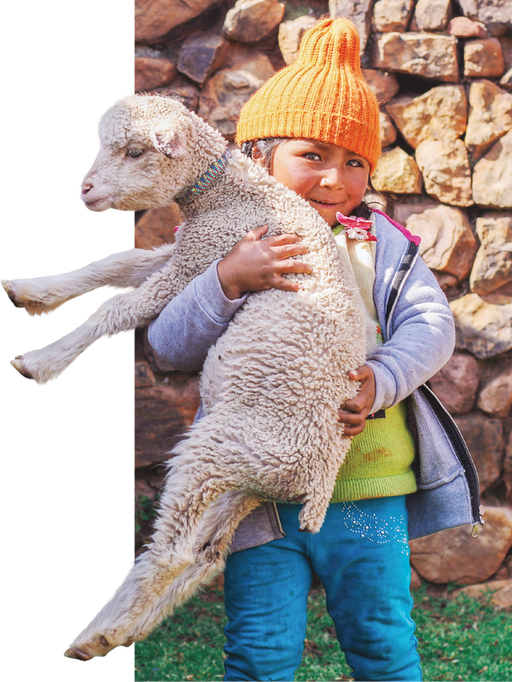
EveryoneinPunogetsinvolvedwithraisingsheepand alpaca.
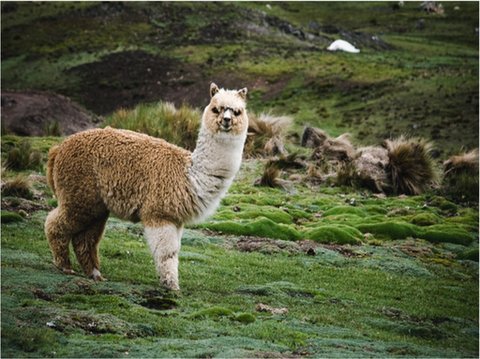
alpaca
Fieldwork
Toworkasalinguisticanthropologist,itisimportanttodofieldwork.Normally,thismightmeantravelingtoaremotelocationtohearpeoplespeakandusealanguage.Inmycase,itmeansactual“field work”asIherdsheeporalpacas.Othertimes,Iplantorharvestcrops.Idon’tdothisworkalone.IworkalongsidethepeopleI study.
Forme,thisisaperfectwaytohearpeoplespeakandto learnhowtheyusetheirlanguage.Andofcourse,Ilistenfornewwordsandanysignthatwhatpeoplearespeakingisdifferentfromthelanguages Ialready know.
Whenherding,mynewneighborsandIwouldtaketheanimalstoremotehillsidepatcheswheretheycouldgrazealldaybeforecominghomeatnight.Ontheselongwalks,IlearnedalotaboutthepeopleIwaswithandevenmoreaboutthelandscapeswheretheyhavelivedtheirentire lives.
Allfamiliesheregrowtheirownfood.EverySeptember,theyplantthecropstheywillneedfortheyear:severaltypesofpotatoes,onions,carrots,barley,favabeans,corn,andquinoa,theseed‑likeAndeansuper‑grainthatishighinproteinandfiber.Inurturedmyunderstandingofthesepeoplewhilenurturingmygreen thumb.
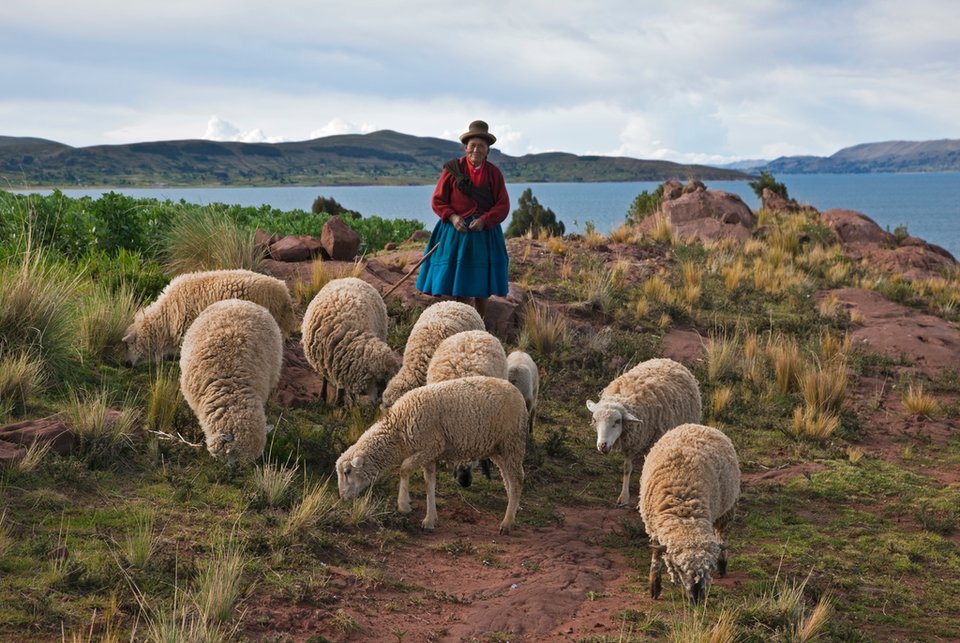


AwomanherdsherflockofsheepnearLake Titicaca.
CollectingTalk
Notalldayswerespentinthefields.WhenIstudyalanguage,Iliketointerviewpeople.Iaskthemtospeakforme.Itiscalled elicitation.
Withmyportablerecorderandmicrophone,Iaskpeopletosayspecificwordsorsentences.ThenIcanstudytheselatertounderstandtheoverallcharacteristicsofhowtheyare spoken.
Othertimes,Irecordfree‑formconversations.Duringthesesessions,peopletalkaboutwhatevertheywantto.Theytellmeabouttheirlives.TheytellmelocalAndeanfolktalesortalkaboutimportantnewseventsinthe region.
Somecommentonthechangestheyhavewitnessedintheregionandwiththeir language.
Mostofthepeoplewhospeakwithmeare50yearsoldorolder.Theyhavelivedtheirentirelivesinthesehillsidevillages.Theycontinuemanyofthesamefarmingandherdingtraditionsandpracticesastheirparentsand grandparents.
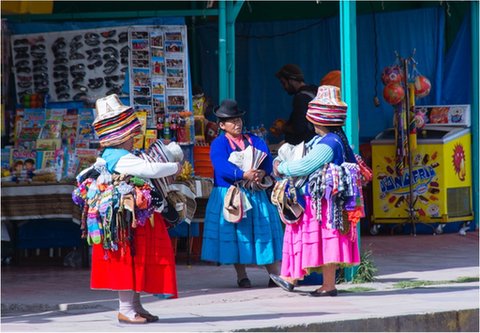
womeninPuno, Peru
Manyspeaktheirlanguagesfluently,buttellmethattheyareworriedabouttheyoungergenerations.Youngerpeopledon’tspeakthelanguagesasmuchastheirgrandparentsorgreat‑grandparents.Manyyoungpeopleonlyspeak Spanish.


Aymara:
Wali luphiwa
(wa-li lu-pee-wa)
English:
Itis really sunny.
CelebratingLife
Thepeoplehereoftenlookforwaystocelebratelife.IaminvitedtotheannualreenactmentofthearrivalofMancoQhapaqandMamaOcllo.TheyarethemythicalcouplewhoaresaidtohavefoundedPuno,andeventually,theIncaEmpire.Irealizethelocalpeoplearecelebratingtheirheritageandtheir languages.
Duringmystudiesinthisregion,Ilistenedclosely.Ihadhopedtocometothisplaceandhearanewlanguage,onethatIdidnotknow.WhilethepeopleheredospeakQuechuaandAymaravarietiesthatareslightlydifferentacrossgenerationsandplaces,Ididnotdiscoverwhatcouldbecalledanew language.
Iconsidermytimeherewellspent,though.Ilearnedhowthesepeopleliveandhowtheyusetheirlanguage.Ilearnedabouttheirheritage.AndIlearnedhowmuchmorethereistodiscoveraboutthesepeopleandtheirwonderful words.
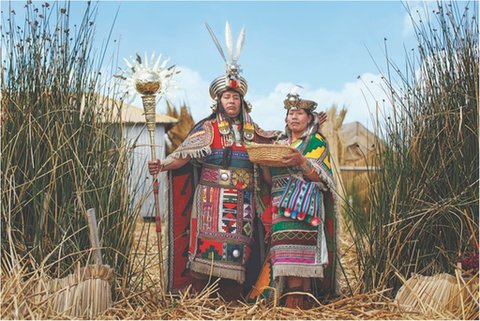
Atanannualcelebration,actorsportraythemythicalcouplewhofounded Puno.


Quechua:
Tupananchiskama
(tu-pa-naan-chis-ka-ma)
English:
See you later!
GULF OF MEXICO
ATLANTIC
OCEAN
NORTH AMERICA
GUATEMALA
Santiaguito Complex
CARIBBEAN SEA
PACIFIC
OCEAN
SOUTH
AMERICA